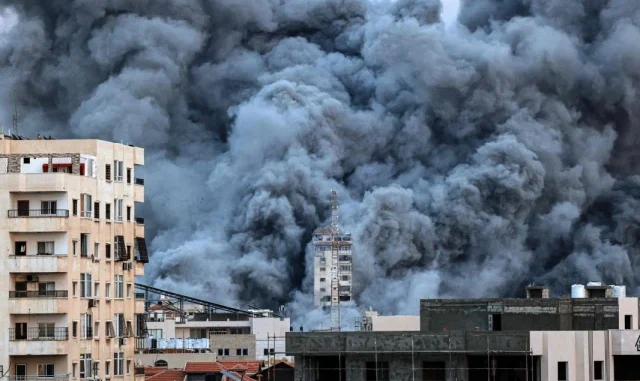
Israel and Hamas Start Indirect Talks in Egypt to End Gaza War
Peace Plan Backed by Trump Gains Momentum
Israel and Hamas have started indirect peace talks in Egypt to end the long-running Gaza war.
The discussions are based on a U.S.-supported plan by President Donald Trump that calls for a ceasefire, the release of hostages, and a major increase in humanitarian aid.
Both sides have agreed in principle to the plan. However, they still need to settle difficult issues — mainly Israel’s troop withdrawal from Gaza and Hamas’s disarmament.
Trump Calls for Quick Action
President Trump said the talks are “the closest yet to ending the war” and urged negotiators to move fast.
“I am told that the first phase should be completed this week, and I am asking everyone to MOVE FAST,” he wrote online.
Even with Trump’s pressure, both delegations are seeking details on how the agreement will work. Past peace efforts collapsed over unclear guarantees.
Trump also asked Israel to pause airstrikes during the talks. Air attacks have slowed but have not stopped completely.
Gaza’s health officials reported 19 Palestinian deaths in the last 24 hours — nearly one-third of the usual daily toll during heavy bombings.
Talks Begin in Sharm El-Sheikh
Egyptian state media confirmed that negotiations have started in Sharm El-Sheikh, a Red Sea resort.
The talks come on the second anniversary of Hamas’s October 7 attack, when militants killed 1,200 people and took 251 hostages — the deadliest assault on Jews since the Holocaust.
Israel’s response has been devastating. Over 67,000 Palestinians have been killed, and most of Gaza’s 2.2 million people have lost their homes and access to food.
Sources in Egypt said Hamas wants clear guarantees that Israel will pull back its troops once the hostages are released. They fear Israel could break the deal after regaining leverage.
Ordinary People Plead for Peace
Inside Gaza, civilians say this deal is their last hope to stay alive.
“If there is a deal, then we survive. If there isn’t, it is like we have been sentenced to death,” said Gharam Mohammad, a 20-year-old displaced woman.
In Israel, families of hostages are pushing hard for peace. But several right-wing ministers oppose ending the fighting.
Officials close to the talks say negotiations may last several days. Others believe Trump’s 72-hour target for freeing all hostages is unrealistic, especially for retrieving bodies from war zones.
A Palestinian official involved in the talks said mistrust remains high. “Hamas and other factions fear Israel could walk away once it gets the hostages,” he explained.
Who Is at the Table
The Israeli team includes members from Mossad and Shin Bet, as well as Ophir Falk, Prime Minister Netanyahu’s adviser, and Gal Hirsch, the hostage affairs coordinator.
Ron Dermer, Israel’s chief negotiator, is expected to join later this week.
The Hamas delegation is led by Khalil al-Hayya, its exiled Gaza leader who survived an airstrike in Doha last month that killed his son.
Hamas says it will seek clear terms on prisoner exchanges, troop withdrawal, and a permanent ceasefire.
A major hurdle is the demand from Israel and the U.S. that Hamas disarm completely. Hamas says it will not disarm unless Israel ends its occupation and recognizes a Palestinian state.
Activists Deported After Gaza Aid Attempt
Meanwhile, Israel deported dozens of activists detained from a flotilla carrying aid to Gaza. Among them was Swedish climate activist Greta Thunberg, who supported the mission to deliver relief supplies.
NEWS DESK
PRESS UPDATE
